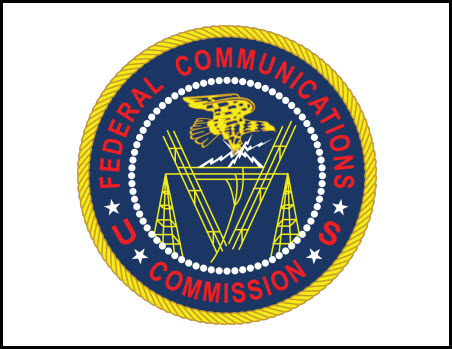FCC Gets Dereg Earful
The smarter way to stay on top of the multichannel video marketplace. Sign up below.
You are now subscribed
Your newsletter sign-up was successful

Comments were coming in fast and furious this week on the FCC's review of all its media-related regulations.
The FCC voted May 18 to launch a review of all its rules and regs applying to media outlets, broadcast, cable and satellite. FCC chair Ajit Pai promised to bring out the regulatory weed-whacker, and drew plenty of volunteers to start it up.
The National Association of Broadcasters focused on reforming or eliminating "reporting, recordkeeping and filing requirements."
That includes (1) reducing the frequency of ownership reports, providing more flexibility in meeting children's TV requirements, simplifying attribution rules, and eliminating reporting requirements for "paper copies of numerous broadcaster contracts already identified via other FCC requirements; (2) an annual report on ancillary and supplementary digital TV services by thousands of stations that do not provide these services; and (3) the EEO Mid-Term Report, which requires the submission of information already available in stations’ online public files."
NAB wants broadcasters to have the flexibility of filing more public notices online, including their must carry/retransmission-consent elections instead of having to send them to cable ops by "snail mail."
"As an initial matter, NAB wants to make clear what broadcasters are not through this initiative," the group said. "Local radio and TV stations are not seeking any diminution in their obligations to serve their communities of license. Rather, broadcasters support an updated regulatory regime enhancing local station's ability to serve their listeners and viewers more effectively in today’s competitive media marketplace."
Content creators associated with the major broadcast nets -- Disney/ABC, CBS, Fox, Univision (also members of NAB) -- put in their pitch for clearing out the regulatory "underbrush," including children's TV programming mandates on broadcast and cable when such programming is readily available, and not regulated, on the internet. They want the FCC to reconsider the prohibition of including web links in programs targeted to children, and the prohibition on broadcast host selling -- a character in a cartoon appearing in an ad in that cartoon -- to online platforms.
To make the point of the need for pruning outdated regs, NCTA: The Internet & Television Association, used an old typewriter font for the into to its comments, saying, "Back when many of the regulations addressed in these comments were being considered, this is how our filings at the Commission looked."
The NCTA had plenty of asks, including revising children's advertising limits, eliminating annual cable system reports, reducing the "burdens" of leased access rules, clarifying program-carriage rules, restoring the "proper scope" of program access, and more.
The FCC sought input in a Notice of Inquiry. The NCTA said it should convert that to a Notice of Proposed Rulemaking and start clearing the underbrush.
The Radio-Television Digital News Association told the FCC that it should eliminate the "telephone broadcast rule," which requires that broadcasters inform any party to a recorded conversation of the intention to air it unless there should be a presumption that the conversation is being broadcast or is likely to be.
"[T]here are so many pervasive means through which a recorded telephone conversation may be disseminated for public consumption that to perpetuate a broadcast-only rule under the guise of protecting privacy is nonsensical," it said.
The smarter way to stay on top of the multichannel video marketplace. Sign up below.
Contributing editor John Eggerton has been an editor and/or writer on media regulation, legislation and policy for over four decades, including covering the FCC, FTC, Congress, the major media trade associations, and the federal courts. In addition to Multichannel News and Broadcasting + Cable, his work has appeared in Radio World, TV Technology, TV Fax, This Week in Consumer Electronics, Variety and the Encyclopedia Britannica.

